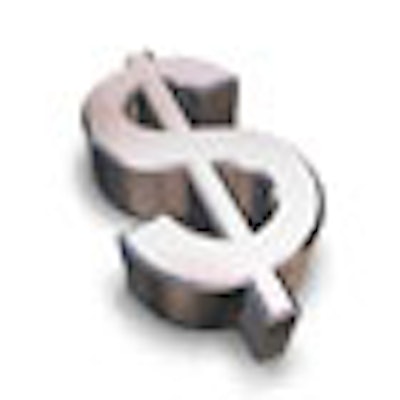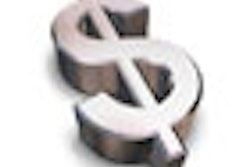
For the fourth fiscal quarter in a row, about half of U.S. dentists surveyed by the ADA said their income had dropped from the previous quarter, suggesting that the recession is biting steadily into earnings.
“Patients are putting off elective procedures.”
— Bassim Michael, certified public
accountant
In the most current survey, conducted between July 6 and July 15, 51.3% of the 1,275 dentists who responded to a questionnaire said their income was lower in the previous three months than in the three months before that. The proportion who thought their income had remained steady was 29.3%, while 19.4% reported an increase.
The downturn isn't affecting everyone equally. "Among those who practice bread-and-butter dentistry, we have not seen any decline," said Bassim Michael, a Fresno, CA, certified public accountant who specializes in working with dentists. "If you're relying more on cosmetic dentistry, we have seen a decline. Patients are putting off elective procedures."
The ADA survey didn't distinguish between cosmetic or elective and necessary procedures. But it did suggest that specialists are suffering more, with 64.7% of endodontists, 66.7% of periodontists, and 54% of orthodontists reporting lower income in the most recent quarter. Pediatric dentists actually appear to be doing better; only 24% reported lower income, while 39.4% actually said they made more money in the most recent quarter.
The survey also found sharp differences depending on region, with the largest percentage of dentists in the Pacific region (61.7%) reporting a drop and the lowest percentage (30.36%) in New England.
The downward trend isn't new. The ADA has been surveying dentists about their income since the third quarter of 2008, and in every quarter since then more than 48% have reported a drop and less than 30% have seen an increase. (The trend was statistically significant; p < 0.0001.) The survey found a similar pattern in gross billings and collections; about 27% of dentists reported higher adjustments and write-offs quarter by quarter, with only 7% seeing a decrease.
The report is among several the ADA has released in recent months. In an August 5 alert, the organization touted a three-report set of surveys on the incomes of dentists and their employees.
A separate survey of 4,725 generalists and 3,150 specialists suggests that, prior to 2007, dental professionals had been seeing a steady uptick in annual income year over year. In 2006 -- the most recent year for which the ADA asked this question -- dentists who own or co-own their practices made an average of $224,190 per year in net income. (The confidence interval on dentists' mean income was ± $8,437.)
The income for these independent dentists was up 13.3% from 2002 (or 3.1% after inflation), when they averaged $193,980 a year.
Specialists, too, were rising with the tide until 2006. From $270,170 a year in 2002, the average specialist's salary rose to $305,790 in 2006.
New England dentists, in addition to weathering the downturn best, also started out with higher income, according to the survey. Independent dentists there reported an average income of $276,000 in 2006. Dentists in the East South Central census region (Alabama, Tennessee, Kentucky, and Mississippi) reported an income of $190,320.
Further bumps in the road may lie ahead for dentists. Medicaid cuts could affect some dentists directly and others indirectly if dentists who accept Medicaid lose patients and begin competing for cash and insurance patients, according to Michael.
But overall, Michael remains optimistic. "We see a rosy future for the profession," he said, noting that 6,000 dentists are retiring every year while only 4,000 are graduating from dental school.
His advice? "Don't cut your marketing," he said. "If you're focusing on the elective stuff, you might pull back and say, 'We do family dentistry, and we also do these other things.' "
Apparently, it's a good time to just be a regular dentist.
Copyright © 2009 DrBicuspid.com



















